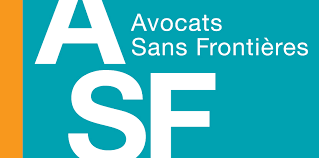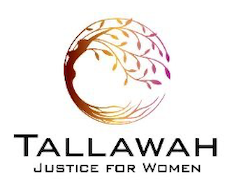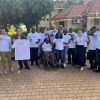“For Women’s Sake, Justice Can’t Wait ” Women Survivor Leaders Arise Conference – Part 4
Prioritizing Access to Justice for Sexual violence survivors in Uganda
With support of Tallawah Justice for Women,the University of Nottingham and Avocats Sans Frontières, GWED-G is organizing the third in the series of powerful Women Leaders Arise Conferences, entitled For Women’s Sake, Justice Can’t Wait! The event will bring together 125 women leaders from 10 conflict-affected districts in Northern Uganda, along with community leaders, local police, and justice sector officials, local parliamentarians and civil society organizations, legal and medical professionals, to discuss challenges in accessing justice for sexual and gender-based violence (SGBV) and to propose innovative pathways for redressing gaps in the justice framework in Uganda. During the Conference, women leaders will form a coordination body called the Women Leaders Justice Response Taskforce, a group of women grassroots and survivor leaders tasked with representing the broader interests of women victims and survivors on matters of justice, reparations and feminist advancement.
Context
More than 50% of women and girls in Uganda experience violence throughout their lives, and those in conflict-affected regions suffer disproportionately from sexual and gender-based violence (SGBV). During and after the COVID-19 pandemic, this number increased significantly. However, access to justice for victims of SGBV is a difficult and complicated process.
Despite the government of Uganda’s efforts to put in place a comprehensive policy framework to address gender challenges including the National Transitional Justice Policy (NTJP), the National Policy on Elimination of Gender-Based Violence (GBV policy) and the National Action Plan III on Women, Peace and Security (NAP III), there is a gap in translating policy recommendations into actionable steps with tangible impact at local, community and individual levels. Because of these gaps, Women survivor leaders of grassroots organizations play a crucial role in conflict management, prevention and response for victims, as mediators, negotiators and first responders who facilitate victims’ access to holistic justice support including participation in justice processes, emergency medical care, and physical and psychological aid.
General Objective
The symposium aims at bringing the above stakeholders ( women grassroots and survivors leaders) together to discuss challenges in accessing justice for SGBV and to propose innovative pathways for redressing gaps in the justice framework.
Expected results
- At the end of the symposium and the project, the consortium expects women leaders to gain more knpwledge and understanding on conflict drivers and barriers to access to jusrice in the region. More understanding on referal pathways and how to use ADR to resolves local conflicts.
- Formation of a coordination body namely, the “Women Leaders Justice Response Taskforce” with one representative from each district. This shall be done after the Election of Women Leaders Task Force.
- Production of a symposium report and outcome paper, which will feed back into the research work previously conducted by the consortium.
- Response mechanisms, referral pathways, support and accountability systems for SGBV localized and strengthened; survivor-centred justice support mechanisms integrated;
- Increased use of available, accessible, and quality essential justice services by women and girls who experienced violence.
Partner(s)
Tallawah Justice for Women, the University of Nottingham and Avocats Sans Frontières are our partners for this crucial conference to advance women’s rights in these regions.






